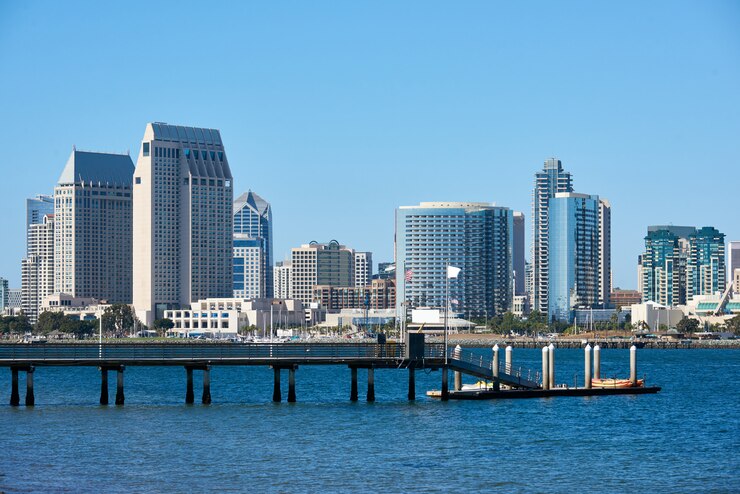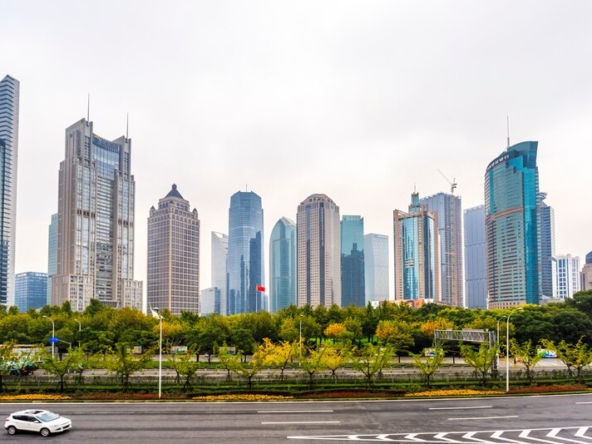7 Important Commercial Property laws in Dubai
Commercial real estate in Dubai is one of the most attractive sectors for investment in the emirate, offering tremendous opportunities for growth and profitability. In this article, we will provide a comprehensive overview of the concept of commercial real estate in Dubai, the most important projects, and the commercial property laws that investors should be aware of.
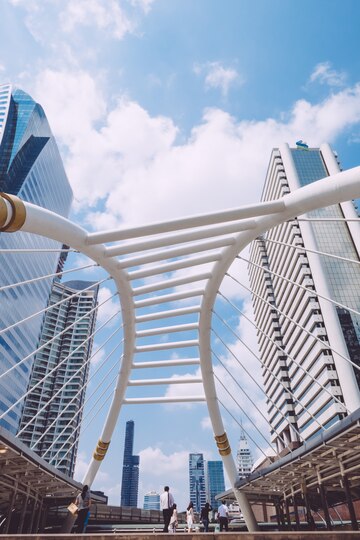
7 Important Commercial Property laws in Dubai
1. Allowing full foreign ownership in free zones:
– This law allows foreign investors to own 100% of their companies’ shares in free zones.
– The main free zones include: Jebel Ali, Dubai Airport Free Zone, Dubai Internet City, Dubai Silicon Oasis, and others.
– Additional benefits of free zones:
Exemption from corporate taxes for a period of up to 50 years (renewable).
Exemption from customs duties on imports and exports.
Freedom to transfer capital and profits completely abroad.
Simplified procedures for obtaining work and residence permits for employees.
– Each free zone has its own specialization, such as technology, media, health, or logistics.
2. Mandatory presence of a local service agent for foreign companies outside the free zones:
– This applies to companies operating in the “mainland” (outside the free zones).
The role of the local agent:
Dealing with government procedures such as renewing licenses and visas.
Providing legal “guarantee” for the company.
Does not interfere in the management of the company or its profits.
The agent receives an agreed annual fee.
The agent can be changed if he does not perform his duties satisfactorily.
There are exceptions for some sectors where full foreign ownership is allowed outside the free zones.
3. The necessity of obtaining a commercial license to practice business:
– Main types of licenses:
Commercial license: for general commercial activities.
Industrial license: for industrial and manufacturing activities.
Professional license: for professional and consulting services.
Tourism license: for hotels, restaurants and tourism companies.
– Steps to obtain a license:
1. Choose the legal form of the company (limited liability, individual, branch of a foreign company, etc.).
2. Reserve a trade name.
3. Submit the required documents (incorporation contract, passports, etc.).
4. Pay the prescribed fees.
5. Obtain approvals from the relevant authorities according to the type of activity.
– The license must be renewed annually.
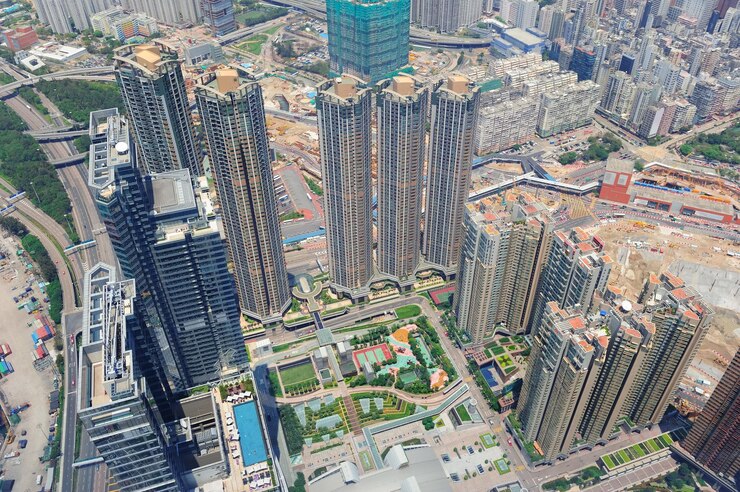
4. Protection of Intellectual Property Rights and Trademarks:
– Protection includes: patents, trademarks, copyrights, and trade secrets.
– Trademark registration process:
1. Search for the availability of the trademark.
2. Submit a registration application to the Ministry of Economy.
3. Publish the trademark in the Official Gazette for 30 days for objections.
4. Issue a registration certificate if there are no objections.
– The trademark protection period is 10 years, renewable.
– Strict penalties for infringement of intellectual property rights, including fines and imprisonment.
5. Regulating commercial lease contracts and protecting tenants’ rights:
– Law No. 26 of 2007 regulates the relationship between landlords and tenants.
– Key points:
Determining the annual rent increase rate (not exceeding 20% in most cases).
The tenant’s right to renew the contract unless there is a legal reason for eviction.
It is mandatory to register lease contracts with the Real Estate Regulatory Authority (RERA).
The existence of a Rental Dispute Resolution Committee to resolve disputes between the two parties.
– The tenant has the right to assign the lease or sublease if the contract allows it.
6. VAT is imposed on most commercial transactions:
– VAT has been applied in the UAE at a rate of 5% since January 1, 2018.
– Companies with annual revenues exceeding AED 375,000 are required to register.
– Compliance procedures:
Register with the Federal Tax Authority.
Issuing tax invoices.
Submitting periodic tax returns (usually every 3 months).
Retaining records for 5 years.
– Some goods and services are exempt or subject to zero rate (such as some health and education services).
7. Ability to register companies electronically to facilitate establishment procedures:
– The “Invest in Dubai” platform provides a comprehensive service for establishing businesses electronically.
– The steps include:
1. Create an account on the platform.
2. Choose the type of activity and legal form.
3. Reserve the trade name.
4. Upload the required documents.
5. Pay fees electronically.
6. Obtain electronic approvals from the relevant authorities.
– Initial trade licenses can be issued within hours in some cases.
– Additional services such as opening a bank account and registering a trademark are available through the platform.
These laws and procedures aim to make Dubai an attractive destination for investment while ensuring a regulated and protected business environment. Investors are always advised to consult a local legal advisor to understand how these laws apply to their particular situation and to stay informed of any updates or changes in legislation.

the penalties for violating these laws
The penalties for violating commercial property laws in Dubai can be severe and varied, including:
1. Fines
Financial fines ranging from AED 10,000 to AED 100,000.
Additional fines ranging from AED 50,000 to AED 500,000 in the event of a repeat violation.
2. Ban on commercial activities
Ban on commercial activities for a period ranging from 6 months to 2 years.
Permanent ban on commercial activities in the event of a repeat violation.
3. License withdrawal
Revoke the commercial license for a period ranging from 6 months to 2 years.
Permanent withdrawal of the commercial license in the event of a repeat violation.
4. Confiscation of property
Confiscation of property obtained through violating commercial activities.
Confiscation of property used in violating commercial activities.
5. Imprisonment
Imprisonment for a period ranging from 6 months to 2 years.
Imprisonment for a period ranging from 2 to 5 years in case of repeat violation.
6. Administrative fines
Administrative fines ranging from AED 5,000 to AED 50,000.
Additional administrative fines ranging from AED 10,000 to AED 100,000 in case of repeat violation.
7. Suspension of commercial activities
Suspension of commercial activities for a period ranging from 6 months to 2 years.
Permanent suspension of commercial activities in case of repeat violation.
8. Confiscation of trademarks
Confiscation of trademarks obtained through violating commercial activities.
9. Financial fines on shareholders
Financial fines on shareholders ranging from AED 5,000 to AED 50,000.
Additional financial fines on shareholders ranging from AED 10,000 to AED 100,000 in case of repeat violation.
10. Withdrawal of license from shareholders
Withdrawal of the license from shareholders for a period ranging from 6 months to 2 years.
Permanent withdrawal of the license from shareholders in the event of a repeat violation.
Commercial real estate in the UAE
Commercial real estate in the UAE is considered one of the most attractive sectors for investment in the region. The UAE offers tremendous opportunities for growth and profitability, as it enjoys a number of advantages, including:
Excellent geographical location: The UAE is located in an excellent geographical location, as it enjoys proximity to major markets in Asia, Europe and Africa.
A stimulating business environment: The UAE provides a stimulating business environment, as it enjoys a number of advantages, including the absence of income taxes and the ease of establishing companies.
Advanced infrastructure: The UAE enjoys an advanced infrastructure, as it has a number of airports, ports and highways.
Price per square meter in Dubai
The price per square meter in Dubai varies according to the location and type of property. In some areas, the price per square meter can reach 10,000 dirhams or more. Here are some approximate prices per square meter in some areas in Dubai:
Burj Khalifa: AED 10,000 – 20,000 per square meter.
Dubai Mall: AED 5,000 – 10,000 per square meter.
Dubai International Mall: AED 3,000 – 5,000 per square meter.
Dubai Real Estate Prices
Dubai real estate prices vary depending on the type of property and location. Here are some approximate prices for some types of properties in Dubai:
Offices: AED 500,000 – 1,000,000 for an office.
Shops: AED 200,000 – 500,000 for a shop.
Warehouses: AED 100,000 – 200,000 for a warehouse.
Dubai Real Estate Market
Dubai’s real estate market is one of the most active real estate markets in the region. The Dubai real estate market has a number of advantages, including:
Increasing demand: The Dubai real estate market is experiencing increasing demand for real estate, especially in prime areas.
Increasing prices: The Dubai real estate market is experiencing increasing prices for real estate, especially in prime areas.
In conclusion, commercial real estate in Dubai is one of the most attractive sectors for investment in the emirate. The Dubai real estate market has a number of advantages, including increasing demand, limited supply, and increasing prices. Investors looking to buy commercial property in Dubai should be aware of the laws and regulations governing commercial property in the emirate.
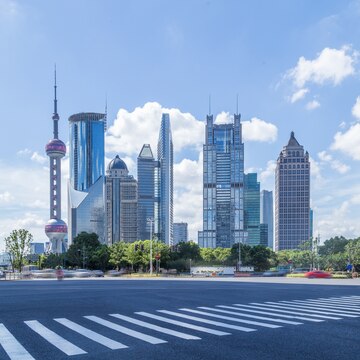
Frequently asked questions:
What are the conditions for investing in Dubai?
To invest in Dubai, especially in the Dubai real estate market and the Dubai commercial real estate market, foreign investors must adhere to some basic conditions. First, the investment requires obtaining a commercial license from the relevant authorities, which allows the investor to legally practice commercial activities. The company must also be registered in the commercial register to ensure the protection of legal rights. In addition, the investment must be in areas designated for freehold ownership, where foreign investors can own 100%. It is also advisable to consult a legal advisor or real estate expert to understand the finer details and comply with all local regulations, ensuring a successful and safe investment in the thriving market.
How much money is required to invest in Dubai?
The amount required to invest in Dubai varies depending on the type of project and field. To invest in the Dubai real estate market, the investment usually starts at around AED 500,000 for residential or small commercial units. However, this figure can vary significantly depending on the location and type of property.
To invest in the Dubai commercial real estate market, you may need a larger budget depending on the size and type of commercial property. It is always advisable to consult a financial advisor or real estate expert to get a more accurate estimate based on your investment needs and goals.
Is it permissible to invest in Dubai?
Yes, it is permissible to invest in Dubai, which is considered one of the leading destinations for foreign investment. Dubai offers an encouraging investment environment thanks to its advanced infrastructure and flexible regulations. Foreigners can invest in the real estate market in Dubai, including the commercial real estate market, especially in freehold areas where 100% ownership is permitted. It is recommended to seek the assistance of a legal advisor to understand the laws and procedures required to ensure a successful and safe investment.
Is it a good time to invest in real estate in Dubai?
Yes, it is a good time to invest in real estate in Dubai for several reasons. Dubai is witnessing a continuous growth in the real estate market, supported by advanced infrastructure and a stable economic environment. In addition, the government provides incentives to foreign investors, such as freehold laws in certain areas. The organization of global events, such as Expo 2020, also enhances the attractiveness of the market. It is advisable to conduct a comprehensive study of the market and consult experts to ensure that informed investment decisions are made.
Is real estate investment in Dubai successful?
Yes, real estate investment in Dubai is generally considered successful. Dubai is characterized by advanced infrastructure, a strong economy, and an attractive environment for foreign investment. The real estate market in Dubai is also witnessing continuous growth due to increasing demand and mega projects. The government provides incentives and facilities to attract investors, which enhances the chances of success in this sector. However, it is always important to conduct careful research and consult experts before investing to ensure that sound decisions are made.
How to become a real estate investor in Dubai?
To become a real estate investor in Dubai, follow these steps:
1. Research and study: Study the real estate market in Dubai to understand trends, prices, and promising areas.
2. Choose a location: Identify freehold areas that allow foreigners to buy.
3. Financial planning: Set your budget and consult a financial advisor to plan your investment effectively.
4. Legal licenses: Obtain the necessary licenses and ensure compliance with local laws.
5. Collaborate with experts: Work with real estate agents and lawyers who have experience in the local market.
6. Visit properties: Visit properties and compare them to ensure the best choice.
7. Complete the deal: Once you have chosen the right property, complete the deal through the official legal procedures.
These steps will help you enter the real estate market in Dubai successfully and safely.
How long is the investor’s residency in Dubai?
The investor’s residency in Dubai is usually for 3 years, renewable. This depends on the type of investment and the amount invested. There are also long-term residency visas available depending on the size of the investment, such as the Golden Residency Visa which can be up to 10 years. It is advisable to check the latest regulations and details with the official authorities or a legal advisor.
How do I invest 1000 dirhams?
To invest 1000 dirhams in Dubai, you can consider the following options:
1. Stocks or mutual funds: Use online trading platforms to buy stocks or mutual funds in small amounts.
2. Small projects: Invest in a small project or through crowdfunding platforms.
3. Cryptocurrencies: Buy cryptocurrencies through trusted platforms, taking into account the risks involved.
4. Education and personal development: Invest in educational courses or books to develop your skills and increase your future opportunities.
Make sure to research and understand the risks associated with each option before investing.
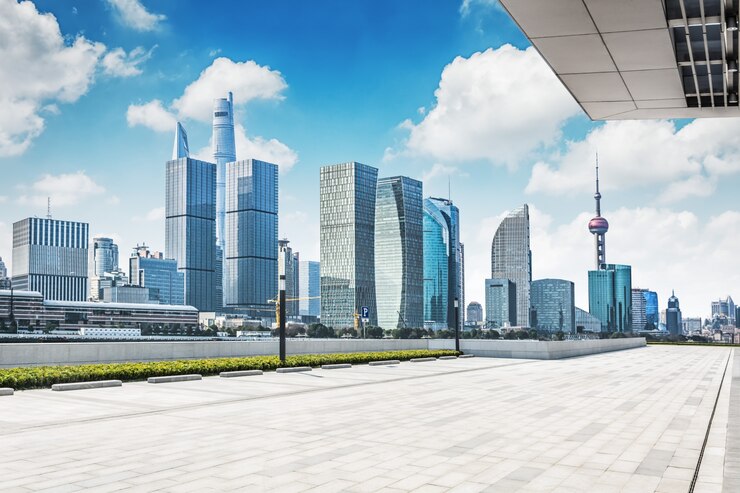
How do I register a trademark in the UAE?
To register a trademark in the UAE, you must follow the following steps:
1. Initial search:
– Conduct an initial search in the trademark database at the Ministry of Economy to ensure that there is no similar or identical trademark already registered.
2. Preparing the application:
– Prepare the required documents:
Trademark registration application form
A clear image of the trademark
A copy of the commercial license
A legal power of attorney if you are submitting the application through an agent
3. Submitting the application:
– Submit the application to the Ministry of Economy either:
Through the Ministry’s website
Or in person at one of the Ministry’s offices
4. Paying the fees:
– Pay the application fees (approximately AED 1,000 for each category)
5. Examination and auditing:
– The Ministry will examine the application to ensure that it meets the legal requirements
6. Publication:
– If initial approval is granted, the trademark will be published in the Official Gazette and in two daily newspapers
– The publication period lasts for 30 days to allow for any objections
7. Objection period:
– If no objection is submitted within 30 days, you can proceed to the next step
– If an objection is submitted, it will be reviewed by a specialized committee
8. Final registration:
– After the objection period ends without problems, pay the final registration fees (approximately 10,000 AED)
– You will get a trademark registration certificate
9. Duration of protection:
– The trademark protection lasts for 10 years from the date of application
– It can be renewed for similar periods
Additional tips:
– The process may take from 6 to 12 months
– It is advisable to consult an intellectual property lawyer to assist in the process
– Make sure to renew the trademark registration before the expiration of the protection period
– You can register your trademark in several categories for broader protection, but each category requires additional fees
How is a trademark documented?
1. Official registration:
– After approving the trademark registration application, the Ministry of Economy issues an official registration certificate.
– This certificate is the primary document proving your ownership of the trademark.
2. National Trademark Registry:
– The trademark is listed in the National Trademark Registry.
– This registry is an official database maintained by the Ministry of Economy.
3. Publication in the Official Gazette:
– Details of the registered trademark are published in the UAE Official Gazette.
– This publication is considered a public notice of the trademark registration.
4. Receiving the Registration Certificate:
– You will receive an official registration certificate containing:
Trademark registration number
Registration date
Expiry date
Owner name
Image of the trademark
Categories in which the trademark is registered
5. Additional documentation (optional):
– You can document the trademark at the Chamber of Commerce in your emirate.
– It can also be documented at the Ministry of Justice for additional legal protection.
6. International registration (optional):
– If you wish to protect your trademark outside the UAE, you can apply for international registration through the Madrid System.
– This allows you to protect your trademark in multiple countries with a single application.
7. Record keeping:
– Keep copies of all documents related to the registration and renewal of the trademark.
– Document any use of the trademark in the market (such as advertisements, products, invoices).
8. Continuous monitoring:
– Continuously monitor the market to ensure that there are no infringements on your trademark.
– You can subscribe to trademark monitoring services to receive alerts about any similar registrations.
9. Renewal:
– Make sure to renew your trademark registration before the expiration of the protection period (every 10 years).
– The renewal process enhances the documentation of the trademark and ensures its continued protection.
Remember that accurate and regular documentation of your trademark helps to protect it better and makes it easier to prove its ownership in the event of any legal disputes.

